LIS: a squiggly road, but I’m finally home

Finishing my second semester here at LIS has been a cause for reflection. Two years ago, you would have found me struggling to find myself at the University in Birmingham studying a Liberal Arts degree. A year before that, on my gap year, locked down and pining for adventure. A year before that again, and you’d see me desperately procrastinating instead of revising for the international baccalaureate. At every stage, feeling a little stuck and still desperately unsure of where I was going.
Sitting on the fifth floor of LIS, looking out over East London, I can safely say that things have changed for the better. But a question still remains: how did I get here? And why am I fundamentally satisfied here at LIS, having dropped out of my previous university? Continue, Dear Reader, and find out. We’ve got a gap year and two years of university to get through. This is going to be a long one.
---
Like others on this blog, as early as choosing my GCSEs I had struggled with the idea of narrowing down my options. My teachers were keen to tell me the importance of picking carefully (read: choosing subjects I was good at) and sticking to my choices. After all, my results would dictate what A-levels I could do, which would in turn narrow down the university subjects available to me in the UK. From that point I’d be hunting for a job that fit the skills my degree gave me. Following the 4 GCSE options à 3 A-levels à a single-honours degree track, UK education features ‘dropping’ until you are left with one subject. My interests were eclectic, but on this path it looked like all but one would eventually have to go.
To this end, the first step in my coming to LIS was searching (or wishing) for a way out of this specialisation pipeline. This started with the International Baccalaureate (IB), an alternative program to A-levels where students straddle six subjects alongside a ‘core’ Theory of Knowledge curriculum, a mini-dissertation on any subject they are interested in, and a community service requirement. I could wax lyrical about how good the IB was for me — or complain about how difficult it was to find a state school offering it — but the IB is only a part of my story; I don’t want it to steal the show. 18 and living in a world where I didn’t know about LIS, my understanding of education after IB was that it would be a choice between a single honours system on one end, and Liberal Arts on the other. In good anglophone spirit I saw these as the ‘British’ and ‘American’ systems, respectively. It was time to get exploring.
Any degree subjects you like… but not those….
What I told my parents, friends, and careers advisors at the time was that I wanted to find a way to reconcile my interests in history and physics. I initially tried to apply for some dual or triple honours systems in the UK, such as PPE, but my heart really wasn’t in it. Although supposedly ‘interdisciplinary’, all these British options that I could find at the time were divided between the arts and the sciences. I could study history with politics, or perhaps physics with another science or philosophy, but in no way could I capture what I believed I really wanted at university; History and physics together, studying the arts and sciences as two parallel streams. Even dipping my toe in the water and having the flexibility to decide which was more important to me; just trying both at university level would be a good start. Was I a scientist, or a historian? Seeing no good options for this after the January 15th UCAS deadline, I rejected all my offers and fell into a gap year.
Here marks when LIS first appears in this story. It’s first appearance is very brief, but important. A friend of my mum’s had told my parents about a new interdisciplinary university that she’d read about in the paper. I was intrigued, went to an open day, and was extremely impressed. The day was slick, well executed, and in particular their accommodation for my severe visual impairment was better than at any other point in my education. It was immediately obvious that they were directing much more attention to every prospective student than any of the universities I had visited prior.
However, to someone still hung up on whether I’m a scientist or a historian, I wasn’t sure whether I would be able to accept LIS’ lack of wet labs. Since I was feeling rocky with my maths ability I had spun this narrative of myself as an ‘experimental’ scientist rather than a theoretical one, and going to LIS would concede that idea. Still, LIS really stood out in its mission.
In October 2019, the decision was eventually made for me. LIS rung me up and explained with a heavy heart that they would be opening in 2021 rather than 2020 as originally planned. As appealing as LIS was at the time, I discarded it as an option because I couldn’t face the thought of two gap years in a row before university. This became more and more apparent as COVID kicked off and my options for work and travel were scuppered. I don’t want to indulge in “would-a”, ”should-a”, or “could-a”, but if not for this delay I think LIS would have been my first choice despite my apprehension over ‘giving up’ an experimental science element.
I will come back to this again later but cannot stress this enough: although I was at the time hung up on the lack of an experimental science element, future experiences would show me that I categorically did not want to work in a wet lab as a researcher. Ever. I really sympathise with the risk an 18-year-old takes coming to LIS when they haven’t had a taste of what a more traditional university is like. They haven’t had the luxury of trying the alternative, finding out it didn’t work, and realising with no regrets (as I did) that LIS is exactly what they want to do. It’s really apparent here that students who’ve tried other universities and then made their way to LIS are often the university’s strongest supporters.
Plans change (and change again)
After rejecting my UK university offers, I started exploring the American and European Liberal Arts route. I applied to several university colleges in the Netherlands and started preparing for the ACT. I quickly lost interest in the American option after running out of scholarship options, but a visit to the Netherlands was more promising. It seemed I would be able to have my chosen combination of subjects, albeit with some significant compromises. If I wanted to have Physics be the ‘major’ component of my course that would mean studying no history until the second year of my degree. If I wanted History as the major, there would be no way to change my mind and switch to a Physics major later down the line. I couldn’t balance to two evenly. Most importantly, it involved a huge financial gamble. The Dutch government insisted at the time that in the event of a ‘hard’ Brexit, there could be no guarantees around whether my student fees would continue to be under EU rates or whether I would be redefined as a ‘3rd country’ student. My fees would triple. I would lose my loan option. I would have to leave the university and start again elsewhere. Did I feel lucky?
In the end, UK students who started their degree that year kept their EU fees for the full duration of their course. Considering what happens later in this story, this doesn’t seem like much of a risk at all.
Midway through my gap year, the lovely Kristen Stockdale, (sadly no longer at LIS) let me know that LIS would be running a prototype course online (Explore ID). She invited me to have a go and, as I said to my parents after it was finished, it was the most stimulating bits of education I’d experienced up to that point. I was blown away by it. It was intellectually rich and full of vibrant characters. The course was a mix of students, academics, and professionals, all of whom had a lot to teach me (the youngest soul on the course). I had never experienced education that tried (and in my eyes, succeeded) in taking academic insights and targeting them to help engage with the complexity of real problems. It was also obvious that it wouldn’t have learned what I did from explore ID without being in contact with the faculty who facilitated it. This was knowledge passed on by experience. My experiences on Explore ID would niggle away at me for the next two years as a remind of what university could be like, but wasn’t.
In the meantime, and with LIS tantalising but no longer on the cards, I’d found two options back in the UK that were the closest fit I could find to a History and Physics degree: A Liberal Arts and Natural Sciences Course at a university in Birmingham, and an easily confused but notably different Arts and Sciences BASc at UCL, set up by Carl Gombrich. Does that name sound familiar?
Falling into a gap year again convinced me that I had to keep moving with my education before it became too difficult to jump back in. The clock was ticking, or at least so I felt. Choosing incorrectly and having to drop out felt like it would be disastrous, especially if I’d chosen not to go to the Netherlands to try and avoid that risk. A long and beer-fuelled chat with a friend of mine at UCL again persuaded me to take the less risky, seemingly more academically flexible option and go to Birmingham. Uh oh.
Hint: it doesn’t go well.
I think the reasons I left Birmingham are long and myriad, and would be best explained in a blog post all of their own. Here's a quick blow-by-blow account of my experiences, and some conclusions as to why the seemingly ‘safe’ option was the path that led me to drop out of university.
I had no idea how lonely university could be. The liberal arts department at Birmingham was its own entity. Students would soldier out into the university for whichever modules they had picked. They would be mixed in with single honours students for a module, then disappear someplace else as their interests changed. I had a 'core' of friends in the liberal arts course, but it was very hard to find people with common interests. Arriving at the height of Covid didn't help when classes and societies were online, but even once we were meeting in person again nobody seemed keen to chat about their work or course content over a coffee after a lecture. Everybody would head home and submit their assignments off in their own little worlds.
The lecturers were similarly distant. UCU strikes were ongoing the whole time I was there and contact hours suffered. If I wanted to talk through a topic with a lecturer, office hours similarly suffered due to strikes. A connected issue was that the university offered very specific optional modules that it no longer had the specialist faculty to support. Rather than drop the modules to match the specialisms of their staff, they contractually obligated staff to teach modules they had no expertise in. I was in the unfortunate situation of sitting in a seminar on the role of Eunuchs in Ming China where the student next to me had a knowledge base that utterly eclipsed the lecturer’s, whose research was in 17th century English feminism.
I wasn’t able to pursue my interest in history or physics. Since I had taken IB subjects with it in mind that if I were to do a pure science degree, it would be in Europe, I hadn’t chosen to take higher level maths as part of the IB. UK universities are much more strict than Europe or the US on subject requirements, so the only way I would be able to study physics, I was told, was if I went through a first year of materials science or chemistry modules. By the time I arrived in second year, I was then told that there wouldn’t be enough credits left for me to major in physics. I was hamstrung by pre-requisites.
Lastly, the liberal arts department had swelled in size, with no clear growth plan. We had two course administrators for close to 500 students, the same number they’d had when the course started with under 40. Getting on the modules you wanted was a fight, and one was faced with the choice to wait for the struggling bureaucracy to catch up to you and miss course content, or turn up unannounced and create further chaos for the liberal arts department when lecturers from other departments started asking why there were mysterious students turning up to their seminars unannounced. Every administrator they had tried to hire to help the current staff had left after a year. Staff in the department were overburdened and when the head administrator and two professors left in quick succession, it was obvious that things were going to get considerably worse.
Time to abandon ship.
At this point, I was two years through a four-year course. I was lined up for a year abroad in Singapore, but that was being thrown into jeopardy by some medical troubles with my eye. I had no clear direction of where the degree was going. Being unable to do any physics and disliking chemistry at university level, I had piled humanities and materials sciences on top of one another to plug the gap. The uni in Singapore wouldn’t accept the science modules I had done as proof enough that I would be able to do similar modules in Singapore and so I had been allocated a technical university to study history and international relations. I had run out of degree flexibility. I felt that, since I was so rarely talking to course mates and lecturers about academic content, that there was very little knowledge or learning that Birmingham had offered me that the richness of the internet couldn’t provide, particularly with the sciences route kaput. So much of the course content was delivered online, even post-covid. I had a very good idea of only two things: that wet labs weren’t for me, and that I categorically did not want to be a career scientist or a historian. Despite my good friends and some fun parties and societies, I was unfulfilled and very unhappy.
To sum it up, the university in Birmingham didn't feel like a huge repository of knowledge that I was paying to access. It wasn't so much a place of learning as it was the place you had to be get your degree certificate. It operated on a model where students resembled customers that were processed through, rather than members of an intellectual society. The university experience there wasn’t the bridge to conversations with subject experts that I so craved. If university couldn’t offer me that, and hence there was little difference between learning there vs. at home, I wouldn’t want to try university again for the chance to spend three years to sit back and read Hegel. I still loved history and physics at the end of it all, and I think I will love them all my life. I realised that I would be perfectly content to learn these my own way, as I always had, online and chatting to those who are interested. If I were to give university another shot, I would want to go somewhere to learn things that would truly be facilitated by being in the presence of real people; experts with knowledge to pass on that couldn’t just be found in the textbooks I could find online. The brilliance of Explore ID was niggling at the back of my mind again…
The previous year, in the depths of COVID despair, I had applied to LIS for 2021 entry. They gave me an offer. I had turned them down because I was convinced that we were headed into another year of lockdowns and I would rather be shut away with friends that I knew, rather than having to uproot. I also felt that Birmingham deserved another chance.
But by April 2022, Birmingham’s time was up; it was clear that COVID was not the source of my troubles there and I decided to leave and assess my options. Perhaps a single-honours War Studies course at Kings would be for me? Perhaps changing to UCL’s BASc? I was still desperately lost and felt that I would have to embark on the next stage as sure as I could be that what I was doing would solve the problems I ran in to at Birmingham. I told the department I wanted to leave. Birmingham had me off their system in two days, with no exit interview. The irony of it all made me feel a little better.
I think it’s worth saying that I felt deeply ashamed to leave the university. It was an admission that things hadn’t worked out despite my best efforts, and a demonstration to my parents that things were going much worse than I had been willing to tell my friends and family. My mother wept when I told her that I wanted to leave; not because she was disappointed but because she’d thought that my silence on how things were at Birmingham had been a sign I was content. It all came out of nowhere for her. After telling her how things had really turned out, we were able to properly talk through what to do next. It was cathartic to talk through, but I wasn’t sure where to go next.
During the process of leaving, I discovered that my old personal tutor James Everest from Birmingham had not become a stay-at-home dad in Oxford, as I had thought, but he had instead taken up a job with… LIS! I sent him an email explaining my situation, and he told me to send a message to admissions, but that’d love to see me there.
I think it’d be best to share directly with you, Dear Reader, the email I sent to Admissions on May 16th last year. It communicates my thoughts from the time more faithfully than my recollections on the experience now ever could. It really makes me smile looking back on it. You can see in the email that I was visibly unhappy, trepidatious, and ashamed, but my willingness to take a leap of faith has so brilliantly paid off. If my anxious self from a year ago could see this blog now, I think it he’d be reassured that he was making the right choice. My email follows:
Hello,
I’m Finn Russell. I’m writing because I see from the LIS website that
although applications for the 2022 cohort have closed, I have the
option to contact the admissions team if I am determined to apply for
entry this year. I first contacted you back in 2019 when I came to a
Discovery Day, hoping to join the 2020 cohort after a gap year. I
attended other events with LIS over the year, and during the first
2020 lockdown I took part in a pilot scheme (Explore ID: Covid-19) and
loved it. As LIS then postponed opening until 2021, I decided to take
up a place at the University of Birmingham for their Liberal Arts and
Natural Sciences course rather than take a second gap year during the
pandemic, but it wasn’t a straightforward decision because I was very
disappointed that I couldn’t have my first choice, which was LIS. I
did apply for 2021 entry whilst at Birmingham and got a place. After a
lot of soul searching I turned it down, feeling that I should stick
with Birmingham. The unsettling nature of the pandemic, lockdowns, and
the possibility that we’d once again go online meant that I was very
hesitant to uproot myself again. I now regret this decision. I think I
would have thrived at LIS in a way that I haven’t at Birmingham.
Although I have learned a great deal academically and about myself
during my time here, the more traditional structure of the course does
not allow for the same interconnected, genuinely interdisciplinary
teaching that I encountered during ‘Explore ID’. I have reached a
point where I am certain that I should make this leap if you will have
me. For transparency, I wrote to my ex-tutor at Birmingham, James
Everest (who is now part of your faculty) who seems to agree that I
would fit in well at LIS, as you presumably also thought when you
offered a place last year. I am not asking to transfer into year 2, I
think I should start from the beginning even though that means I would
be joining as a 21 year old mature student!
I would be more than happy to come up to the campus to talk to you
about this, but if you would prefer a virtual meeting I can do that
too, whatever works best. I do understand that I have left this very
last minute, perhaps too last minute for this year, but I feel like
it’s worth approaching you given that you have offered me a place in
the past.
Best wishes,
Finn
Second floor: pool tables, Interdisciplinarians, solutions to world’s problems
The conversations that my email set up were filled with the characteristic care and attention that had matched my prior experiences at LIS. Both James Everest and Ed Fidoe (LIS’ CEO) offered to have me join in the second year if that’s something I would like to pursue, since I had attended one of the two non-LIS courses in the country that offered some element of interdisciplinary learning that would transferable. I turned this suggestion down; both because I felt that in all honesty, I had learned very little re-applicable to LIS from the two interdisciplinary ‘core’ modules I had taken in my second year at Birmingham, and because I wanted to avoid a situation where I would be jumping in to a very established, close-knit social group as an outsider as I had dealt with at Birmingham.
Ed was very enthusiastic about the idea of me coming (after I made it clear that I had two years to go at Birmingham rather than 1), but wanted to make absolutely sure that this was the right choice for me. He refused to offer me a place until I had set up some Zoom calls to talk through current students and get their opinions of what LIS was like. Only if after that I was still certain, then he would push to allow me to come and have my first year of fees waived, as I’d already used two of four during my years at Birmingham and would have three years to go at LIS.
Every student I talked to was different. LIS was new and experimental, so they said, but the ‘flat’ structure of the university made it fantastically responsive to feedback. Nothing was lost in bureaucracy. Staff were always there to talk to about your work or pet interests. The student body was intellectually engaged and fantastically diverse in background and thought. Everybody had a funny story to tell me about something in their first year. Several student suggested that their peers had been selected for LIS not because of top grades, but because they had something to contribute that would enrich the learning of the rest of the cohort. With no alumni, nobody was there for a no frills, no effort, high-prestige degree. I could clearly see from our conversations that the teaching structure I had so adored in Explore ID had been carried forward. This care and attention, intellectual richness and desire to learn from others was music to my ears. I was hooked. I don’t mean to be damning or vitriolic about Birmingham, but It sounded like someone had taken almost all of my struggles with that university, listened, and corrected them for me one by one.
Joining, my life at LIS, and conclusions
I am truly grateful to Ed for making me pause and collect the cohort’s opinions on LIS before taking the leap to come. I can completely understand how I could have taken all that was missing from my time in Liberal Arts and Sciences, and projected it onto the first course that came my way. Hearing other students’ experiences of LIS, warts and all, was exactly what I needed to be sure I was running towards what I wanted, rather than away from something I couldn’t stand. After all, there were still other options: a year out of education to try sort myself out and wait for the next UCAS cycle, followed by either a War Studies degree at King’s or the Arts and Sciences BASc at UCL.
It’s very clear to me now that another gap year would have pointed me in the direction of LIS rather than these alternatives. I can be satisfied in knowing the learning I do here is both stimulating in the moment, and a process of piecing together an intellectual toolkit with which I can tackle problems in work. As I eagerly write on my feedback forms, when LIS is working at its best, it is offering something that was never available to me at my old university: placing students and faculty together so that we can learn from each other ideas and methods that couldn’t be gleamed from textbooks read online. As small and unconventional as LIS is in other ways, I think that leaves it closer to the image of a traditional university (as in, a place of learning) than my previous institution in that regard. It brings me so much joy when students come up with things in class that make me go ‘I never, ever, would have thought about that idea that way’.
Although my interests at the end of my first year here are, say, quite conflict studies related, I have more flexibility in how I approach my assessments here than I would on an actual conflict studies course. As I grow and learn more methods and apply them to different problems, I can take them elsewhere to a different set of interests. The point is to learn new methods to be able to cross disciplines, not silo yourself into an area of expertise from which it is difficult to engage with complex problems.
In this branching out into different fields I’ve challenged myself and got out what I put in. I’m not thinking about the degree certificate at the end, but the skills I need to pick up in the moment to accomplish the goals set out (some by the assignment brief, many by my own free choice) in each assignment. This has brought me to many different academic disciplines that others have mentioned, but also programs Adobe InDesign, After Effects, and Premier Pro, as well as Python, Loopy, Blender, and Granta EduPack (A Materials Science program). Other students have used a very different set of resources in their first year, such as Matlab. At no point were we learning these by rote; they were always relevant for the problem at hand. I won’t lie, it was extremely challenging picking these skills up on the fly as you needed them, but the speed at which one learns these skills when having to apply them to tackle relevant, complex problems is incredible, and feels exhilarating. Our assignments aren’t arbitrary or an exercise in successfully gaming the marking rubric. When I create a high-quality piece of work I can see how it’s something that, with a little more polish, would be able to go out into the real world. I’ve put together my knowledge and experience and methods to create something that is useful to more than an academic, and that means concern for design, form, and intelligibility as well as the quality of ideas present.
I didn’t come to LIS because I was always career minded and always wanted to solve the world’s problems. Instead, over many different experiences, LIS gradually persuaded me that their model of education is one that I’d like to be a part of, made particularly clear from my disappointing experience trying to juggle subjects at a more traditional university. Here, a close-knit community of staff and students with eclectic interests and specialisms pool their knowledge to learn and teach crucial skills for the modern, messy, mixed-up world that you wouldn’t find anyplace else. Alongside that, I’m independently able to pursue my academic passions in history & physics, as well as my hobbies, made all the richer through the perspectives I’m exposed to in my degree. It’s been a squiggly road, but I’m finally home.
---
Sitting here on the fifth floor of LIS, looking out over East London, I can’t see a thing. I’ve been writing for hours; it’s gotten dark outside and I’ve forgotten to turn the lights on. Stepping away from this post, I hope you can see that I’m satisfied and excited by LIS in a way that compelled me to write 5,000 words about it. If you’re still here, thank you for reading my story and I hope you’ll consider looking further into LIS. In one last sentence, it may not be for everyone (we need specialists, too!), but LIS certainly felt made for me.
If you would like a different perspective on my journey to LIS and my first year here, my mum has answered some questions that you can read in a separate post here.
Feel free to get in touch with me directly at finnian.russell@lis.ac.uk if you have any questions, or via https://www.lis.ac.uk/contact/ for more general queries.
Share this story
Sign up for our newsletter
Don't miss out on important updates including course information, new announcements, Open Day dates and the latest LIS news.

.jpg)
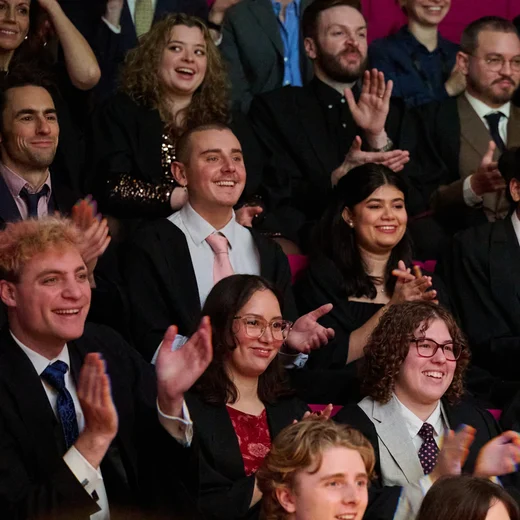


































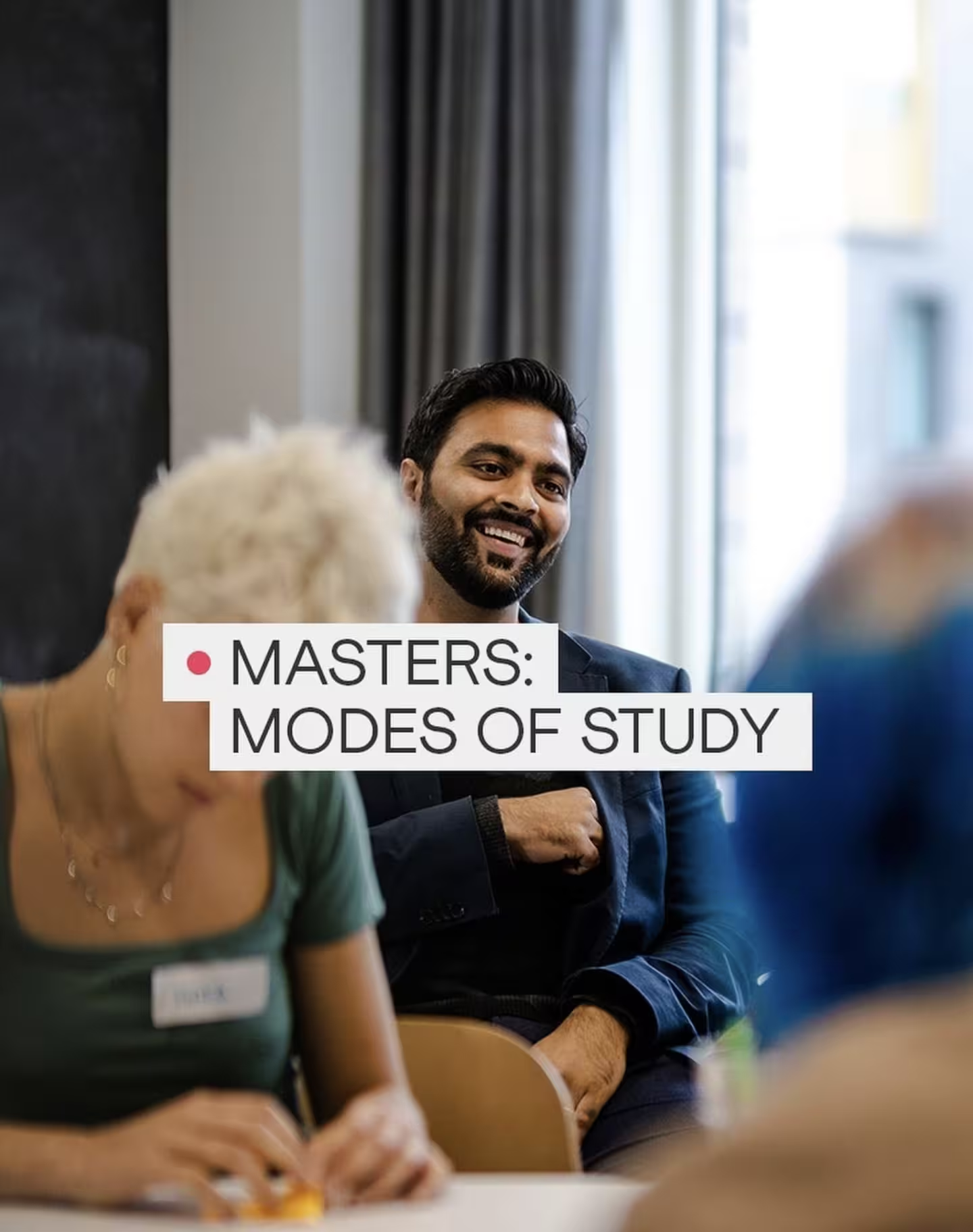
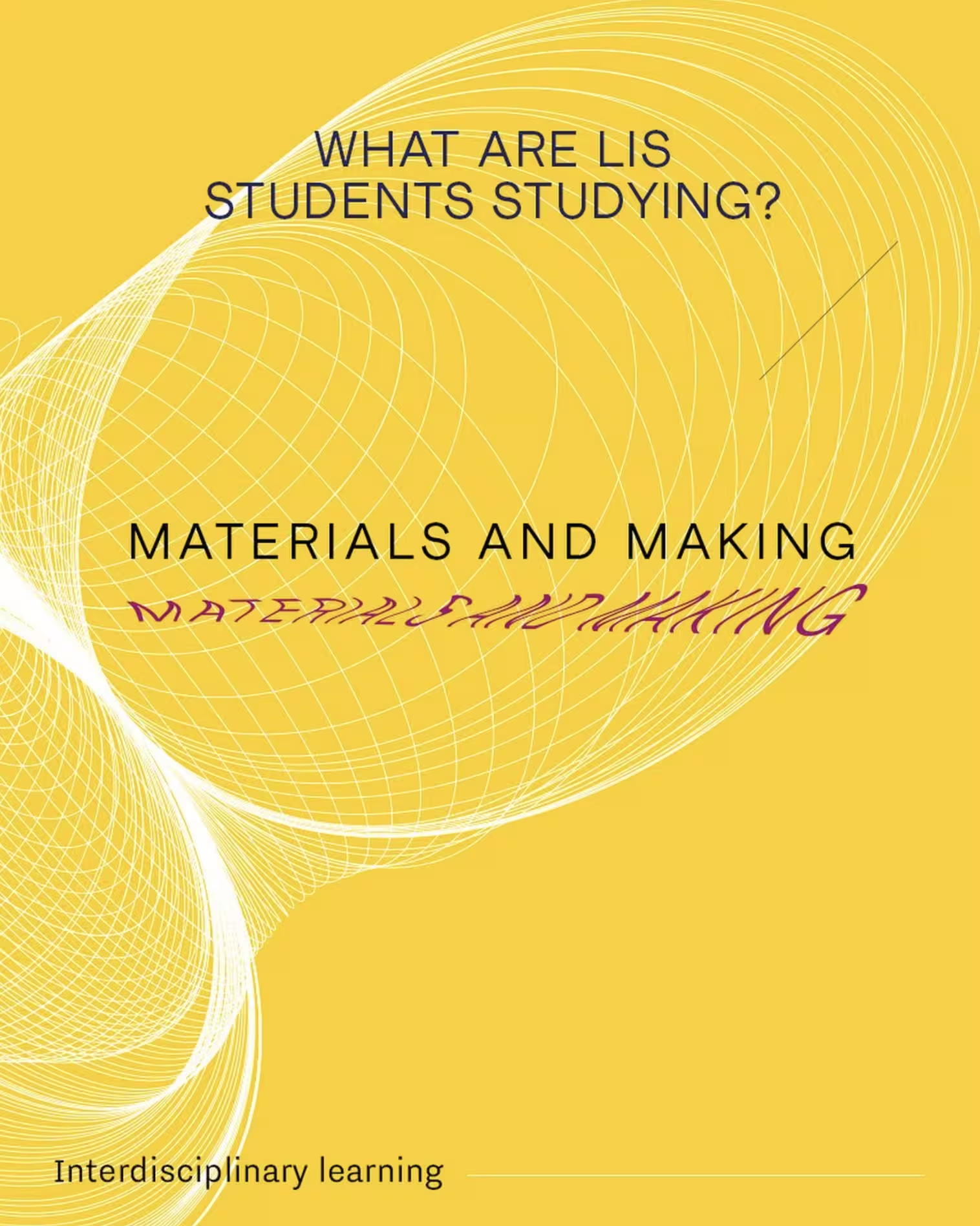
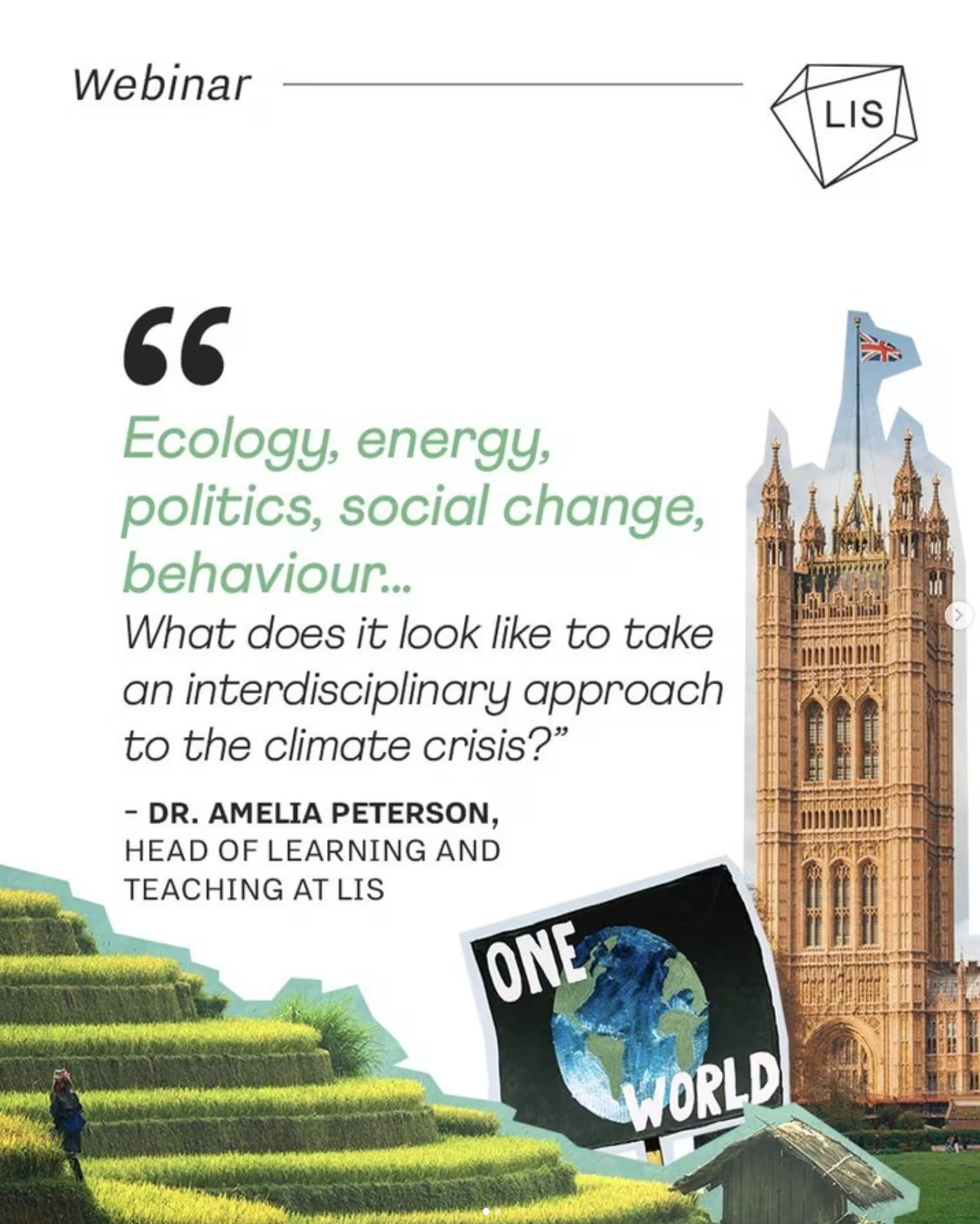






.svg)

.svg)
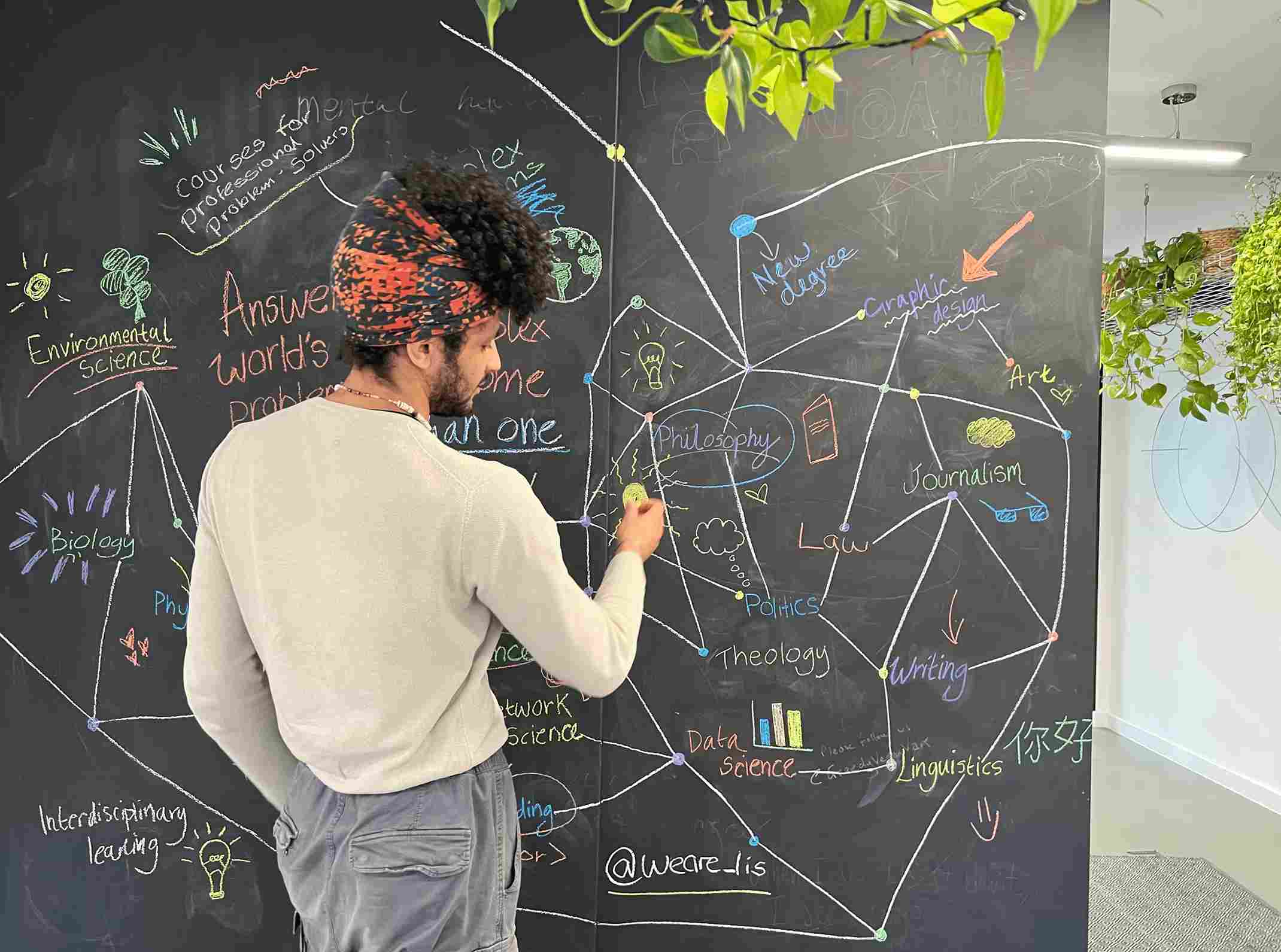







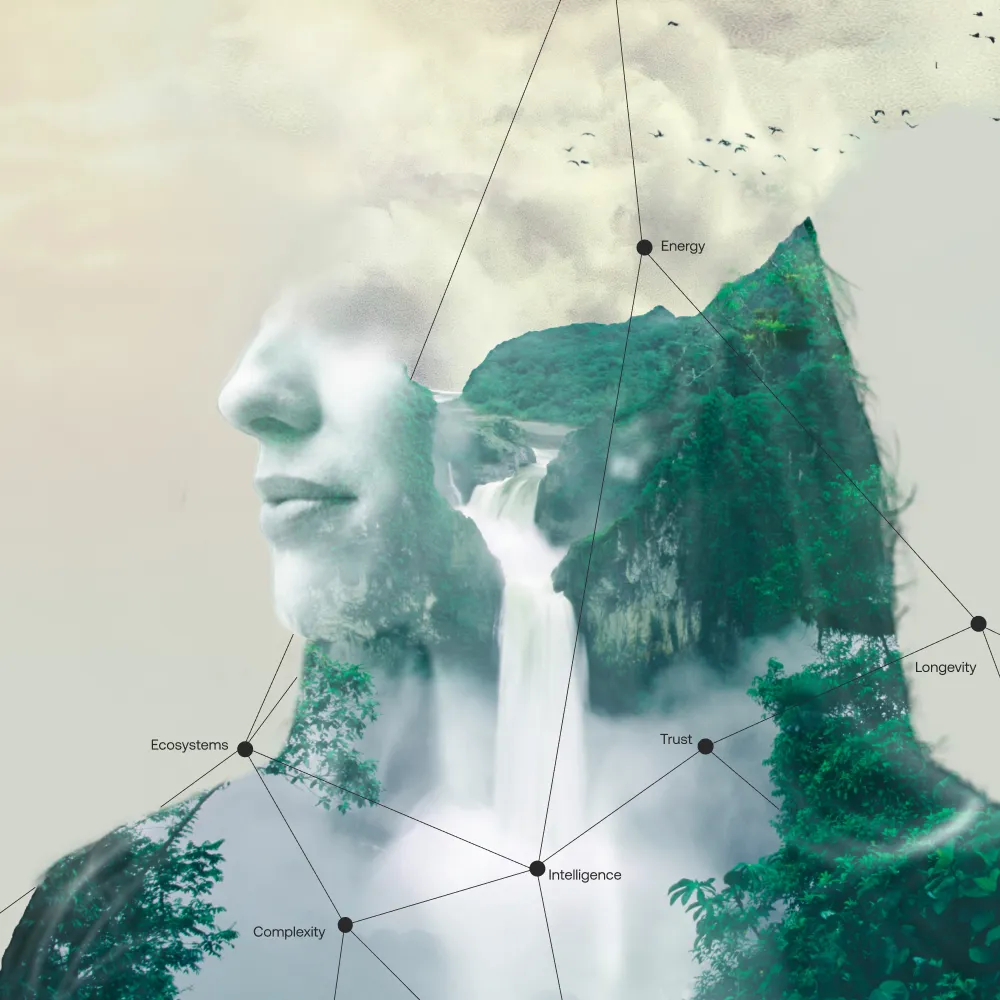
.webp)
This is a comment related to the post above. It was submitted in a form, formatted by Make, and then approved by an admin. After getting approved, it was sent to Webflow and stored in a rich text field.